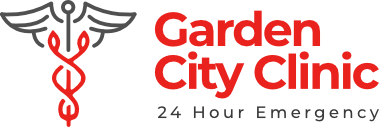Introduction
Welcome to our comprehensive guide to the first trimester of pregnancy. As a trusted source of information, we are dedicated to providing you with valuable insights and guidance to help you navigate this remarkable journey. In this article, we will delve into the various aspects of the first trimester, covering everything from early signs of pregnancy to important milestones and essential self-care tips. Let’s embark on this incredible adventure together!
Understanding the First Trimester
The first trimester is an exciting and crucial phase of pregnancy, spanning from week 1 to week 12. During this time, a multitude of changes occur within your body as it adjusts to support the growth and development of your baby. It is a period filled with anticipation, wonder, and the onset of remarkable transformations.

Early Signs of Pregnancy
Recognizing the early signs of pregnancy is an important step in understanding and confirming your pregnancy. While every woman’s experience may differ, there are some common indicators to look out for:
- Missed Menstrual Period: One of the most prominent signs of pregnancy is a missed period. If you suspect you might be pregnant, this is often the first indication to consider.
- Breast Changes: Hormonal fluctuations can lead to breast tenderness, enlargement, or heightened sensitivity.
- Nausea and Morning Sickness: Many women experience nausea, often accompanied by vomiting, particularly in the morning. This is commonly known as morning sickness, although it can occur at any time of the day.
- Fatigue: Feeling excessively tired or experiencing frequent episodes of fatigue is another common early sign of pregnancy.
- Frequent Urination: As pregnancy progresses, the growing uterus exerts pressure on the bladder, leading to increased trips to the bathroom.
Key Milestones in the First Trimester
The first trimester is a period of rapid development for your baby. Let’s explore the key milestones that occur during this time:
- Conception and Implantation
Conception marks the beginning of your pregnancy journey. After fertilization, the fertilized egg (zygote) travels through the fallopian tube and implants itself into the uterine lining. This implantation sets the stage for the remarkable transformation that follows.
- Embryonic Development
During weeks 4 to 8, your baby goes through the embryonic stage of development. This is a critical period where major organs and body systems begin to form. The embryo develops a primitive heart, neural tube, limb buds, and facial features. By the end of this stage, the foundation for your baby’s growth is established.
- Early Ultrasound and Hearing Baby’s Heartbeat
Around week 6 to week 8, your healthcare provider may conduct an early ultrasound to confirm the pregnancy, estimate the gestational age, and check for the presence of a heartbeat. Hearing your baby’s heartbeat for the first time can be an incredibly emotional and joyous moment.
4. Maternal Changes and Physical Symptoms
Throughout the first trimester, your body undergoes numerous changes to accommodate the growing baby. These changes can manifest as physical symptoms, including:
- Breast Enlargement: As your body prepares for breastfeeding, your breasts may increase in size and become more tender.
- Mood Swings: Hormonal fluctuations can contribute to mood swings, leaving you feeling elated one moment and tearful the next.
- Food Aversions and Cravings: Changes in taste and smell may lead to food aversions or cravings for certain foods.
- Frequent Urination: The pressure exerted on the bladder by the growing uterus can cause more frequent trips to the bathroom.
5. Genetic Testing and First Prenatal Appointment
Around week 10 to week 12, your healthcare provider may offer genetic testing options and schedule your first prenatal appointment. These tests can provide valuable insights into your baby’s health and help identify any potential risks or genetic abnormalities.
Self-Care Tips for a Healthy First Trimester
Taking care of yourself during the first trimester is crucial for the well-being of both you and your baby. Here are some essential self-care tips:
- Nutrition: Focus on consuming a well-balanced diet rich in fruits, vegetables, lean proteins, and whole grains. Stay hydrated and consider prenatal supplements recommended by your healthcare provider.
- Rest and Sleep: Listen to your body and prioritize ample rest. Aim for 7-9 hours of quality sleep each night to support your overall well-being.
- Exercise: Engage in low-impact exercises approved by your healthcare provider, such as prenatal yoga or swimming. Regular physical activity can help alleviate pregnancy discomfort and promote a healthy pregnancy.
- Emotional Well-being: Seek emotional support from your partner, friends, or family members. Consider joining support groups or engaging in activities that promote relaxation and stress reduction, such as meditation or gentle walks.
- Prenatal Care: Attend your scheduled prenatal appointments to monitor the progress of your pregnancy and address any concerns or questions you may have.
Conclusion
Congratulations on embarking on this incredible journey through the first trimester of pregnancy. By understanding the early signs of pregnancy, key milestones, and practicing self-care, you are empowering yourself with knowledge and nurturing the well-being of both you and your baby. Remember to consult with your healthcare provider for personalized guidance and enjoy the remarkable moments that await you on this beautiful path to motherhood.

